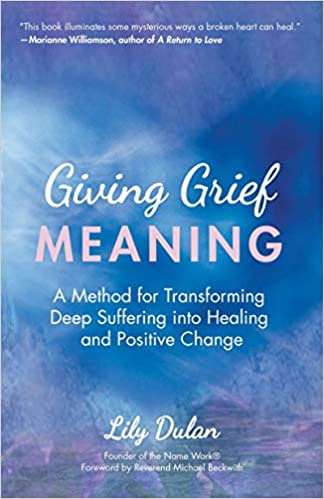
It’s been one of those weeks, hasn’t it? You know the kind – where everything seems to go wrong. Maybe you fought with your partner or got a bad review at work. Whatever it is, it feels like nothing is going your way. When feeling down in the dumps, it can be tough to pick yourself up and move again. But that’s precisely what you need to do to feel better! This article will discuss six simple tips for improving self-care when feeling down.
Start an exercise routine:
If you’re not already exercising regularly, now is the perfect time to start. Exercise has proven to be an effective way to boost your mood and improve overall health. Even if you can only spare 20 minutes daily, that’s enough to start. And who knows? Once you start feeling the benefits, you may want to exercise more. There are plenty of ways to fit exercise into your busy schedule. If you don’t have time for a traditional workout at the gym, try going for a brisk walk in your neighborhood or taking the stairs instead of the elevator at work.
There are many workout videos and apps available online that you can do in the comfort of your own home. Exercise not only benefits your physical health but your mental health as well. When you exercise, your body releases endorphins, which have mood-boosting effects. So if you’re feeling down, a quick workout may be just what you need to pick yourself up.
Get outside:
Another simple way to improve your mood is to spend time in nature. Being in nature has decreased stress levels and increased happiness and well-being. Try to get outside for at least 20 minutes daily if you can. Take a walk in the park, sit on a bench, watch people, or enjoy the fresh air. It may be difficult to find green space if you live in an urban area. But even looking at pictures of nature can positively affect your mood.
If you can’t get outside, try bringing nature inside by adding some plants to your home or office. Studies have shown that being around plants can lower stress levels, reduce anxiety, and improve overall mood.
Make time for yourself:
In our busy lives, it’s easy to forget to make time for ourselves. We are constantly juggling work, family, and social obligations. But if we don’t take the time to care for ourselves, we can quickly become overwhelmed and stressed out. So make sure to schedule some “me time” into your week, even if it’s just 30 minutes to get dimple piercing information. During this time, do something that you enjoy and makes you feel good. This could be reading a book, taking a bubble bath, or going for a walk outdoors. It doesn’t matter what you do as long as it’s something that relaxes and refreshes you.
If you have trouble making time for yourself, try setting a daily or weekly alarm on your phone as a reminder. Once you take some time out for yourself, you’ll be surprised at how much better you feel.
Connect with loved ones:
One of the best ways to improve your mood is to connect with loved ones. When we feel down, isolating ourselves and withdrawing from those we care about is easy. But reaching out to friends and family can help us feel connected and supported. Spend time talking or catching up with a friend, go on a date night with your partner, or have a family game night. If you live far away from your loved ones, stay in touch through phone calls, text messages, or video chats.
Many support groups are available online or in person that can provide social connection and emotional support. Joining one of these groups can be a great way to meet new people and feel less alone.
Do something nice for someone else:
One of the best ways to feel good is to do something nice for someone else. When we focus on others, we take the focus off of our problems and feel better about ourselves. There are many ways to show kindness to others. You can pay it forward by doing something nice for a stranger, like buying their coffee or holding the door open for them. You can also volunteer your time at a local soup kitchen or animal shelter. Or send a handwritten note or text message to tell your loved ones how much you appreciate them. Doing something nice for someone doesn’t have to be a big gesture. Sometimes the most minor acts of kindness can make the most significant difference.
Practice gratitude:
Gratitude is an integral part of self-care. We feel happier and more positive when we are grateful for the good things in our lives. There are many ways to practice gratitude. For example, you can keep a gratitude journal and write down three things you’re grateful for daily. You can also say a prayer of thanks before meals or at bedtime. Or simply take a few moments each day to reflect on the things you’re thankful for in your life. Practicing gratitude can help you appreciate the good in your life, even when times are tough. And when you focus on the positive, it’s easier to let go of negative thoughts and emotions.
Self-care is vital for our physical and mental health. We can improve our mood, reduce stress, and feel our best by taking the time to care for ourselves. So don’t forget to schedule some “me time” into your week and make self-care a priority! Your mind, body, and soul will thank you for it.



 Was your child having difficulty managing at home or distance learning? Is he or she worried about going back to school? I can tell you, my youngest is in a panic about going back, he’s very worried. While at home learning was necessary for both the safety of the children and the teachers and staff, it has definitely had it’s negative effects on quite a few of the kids. Socialization, a sense of normalcy, routine, etc. Being stuck at home was hard on everyone, and it seems that the kids took it extremely rough. If your child is returning to school this fall, check out these tips from Dr. Bregman, child psychiatrist, starting next sentence.
Was your child having difficulty managing at home or distance learning? Is he or she worried about going back to school? I can tell you, my youngest is in a panic about going back, he’s very worried. While at home learning was necessary for both the safety of the children and the teachers and staff, it has definitely had it’s negative effects on quite a few of the kids. Socialization, a sense of normalcy, routine, etc. Being stuck at home was hard on everyone, and it seems that the kids took it extremely rough. If your child is returning to school this fall, check out these tips from Dr. Bregman, child psychiatrist, starting next sentence.















